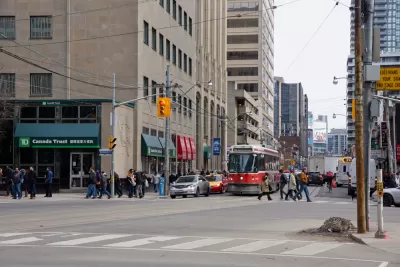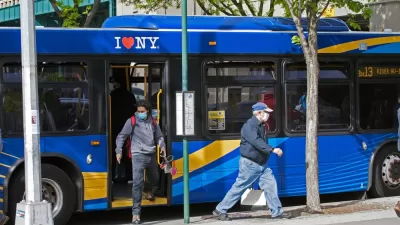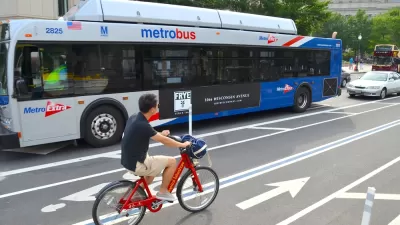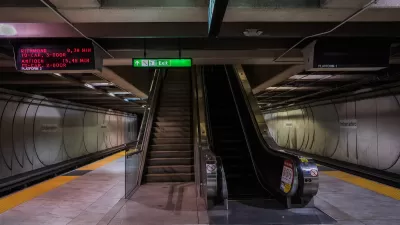Car commuting rates are returning to pre-pandemic levels, while public transit and active transportation rates are slower to recover.

Canada’s car commuters are returning to the country’s roads while transit ridership continues to lag, reports Oliver Moore in the Globe and Mail.
“Overall, the 2021 census showed that the number of car commuters – which the agency defines as drivers or passengers who go to work in a car, truck or van – was 12.8 million a day, about the same as in 2016, Statistics Canada said.” Meanwhile, “About two million Canadians a day commuted routinely by transit before COVID-19 hit, a figure that sagged to 1.2 million during the pandemic.”
According to Moore, Statistics Canada points out that “In many Canadian cities, the result has been a split between those who can choose to avoid transit and those who have no other viable options,” with women, immigrants, and people of color continuing to use transit at higher rates.
Modes like biking and walking also remained at lower levels than before the pandemic, despite efforts to improve pedestrian and bike infrastructure. "Statistics Canada found that the number of people who commuted by active transportation – walking or cycling – fell by 26.2 per cent from 2016 to 2021. The agency attributes that to job losses in sectors whose employees rely disproportionately on these methods of commuting."
FULL STORY: After pandemic dip, commuters are back on the road

Maui's Vacation Rental Debate Turns Ugly
Verbal attacks, misinformation campaigns and fistfights plague a high-stakes debate to convert thousands of vacation rentals into long-term housing.

Planetizen Federal Action Tracker
A weekly monitor of how Trump’s orders and actions are impacting planners and planning in America.

San Francisco Suspends Traffic Calming Amidst Record Deaths
Citing “a challenging fiscal landscape,” the city will cease the program on the heels of 42 traffic deaths, including 24 pedestrians.

Defunct Pittsburgh Power Plant to Become Residential Tower
A decommissioned steam heat plant will be redeveloped into almost 100 affordable housing units.

Trump Prompts Restructuring of Transportation Research Board in “Unprecedented Overreach”
The TRB has eliminated more than half of its committees including those focused on climate, equity, and cities.

Amtrak Rolls Out New Orleans to Alabama “Mardi Gras” Train
The new service will operate morning and evening departures between Mobile and New Orleans.
Urban Design for Planners 1: Software Tools
This six-course series explores essential urban design concepts using open source software and equips planners with the tools they need to participate fully in the urban design process.
Planning for Universal Design
Learn the tools for implementing Universal Design in planning regulations.
Heyer Gruel & Associates PA
JM Goldson LLC
Custer County Colorado
City of Camden Redevelopment Agency
City of Astoria
Transportation Research & Education Center (TREC) at Portland State University
Jefferson Parish Government
Camden Redevelopment Agency
City of Claremont





























